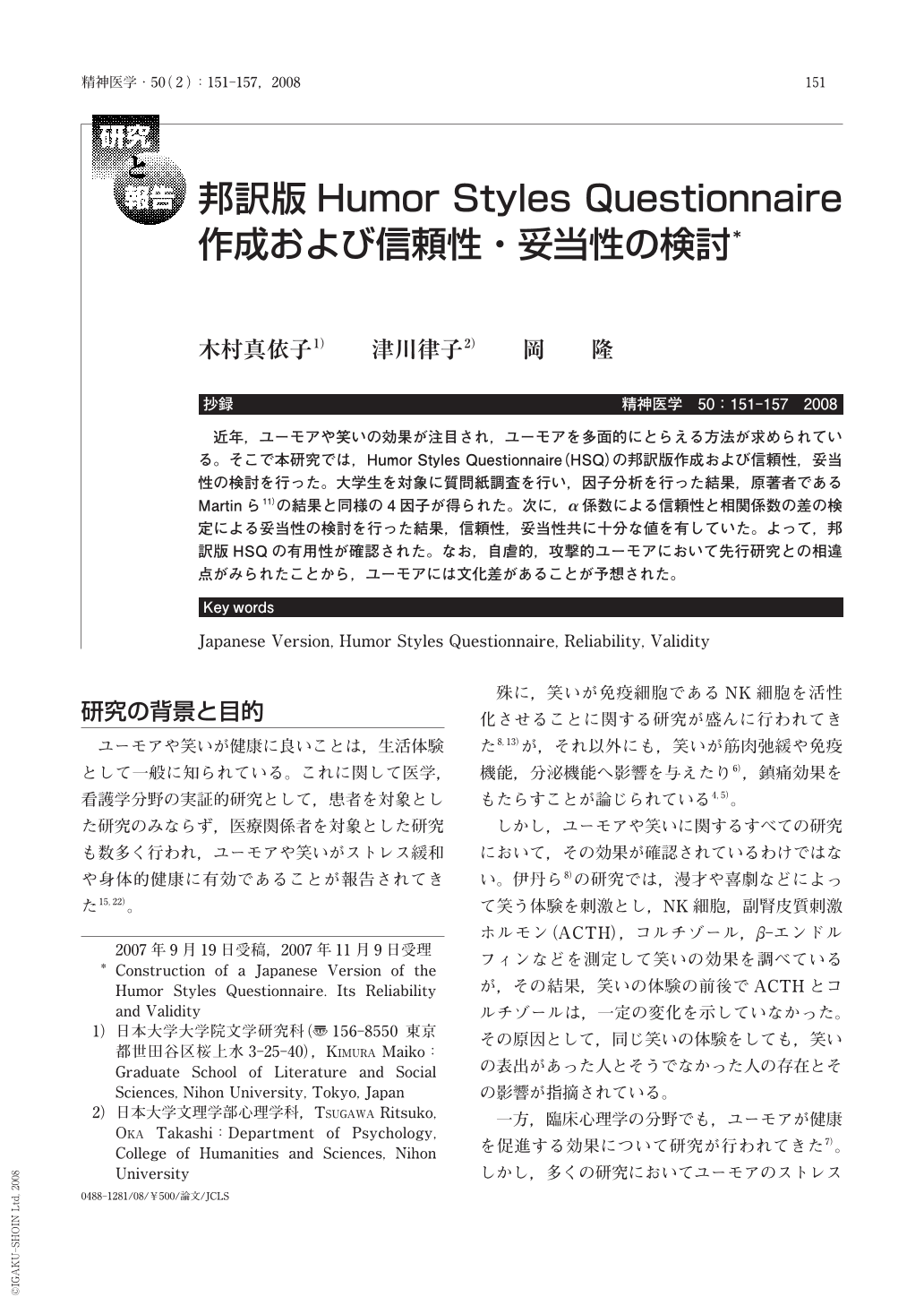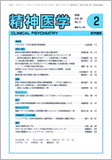Japanese
English
- 有料閲覧
- Abstract 文献概要
- 1ページ目 Look Inside
- 参考文献 Reference
- サイト内被引用 Cited by
抄録
近年,ユーモアや笑いの効果が注目され,ユーモアを多面的にとらえる方法が求められている。そこで本研究では,Humor Styles Questionnaire(HSQ)の邦訳版作成および信頼性,妥当性の検討を行った。大学生を対象に質問紙調査を行い,因子分析を行った結果,原著者であるMartinら11)の結果と同様の4因子が得られた。次に,α係数による信頼性と相関係数の差の検定による妥当性の検討を行った結果,信頼性,妥当性共に十分な値を有していた。よって,邦訳版HSQの有用性が確認された。なお,自虐的,攻撃的ユーモアにおいて先行研究との相違点がみられたことから,ユーモアには文化差があることが予想された。
The effects of humor and laughing have lately attracted attention. A method to measure the humor of various types has been demanded. Therefore, the purpose of this study was to construct the Japanese version of the Humor Styles Questionnaire (JHSQ) and examine its reliability and validity. First, in order to select the items for JHSQ, we performed the exploratory factor analysis of data from 268 undergraduates. The result of the analysis showed JHSQ had 4 subcategorized factors similar to the results of Martin et al. (2003). Regarding internal consistency, Cronbach' s α coefficients were enough except the resulting coefficient of “Aggressive humor”. But it was permissible value. Furthermore, the validity of JHSQ was verified in the following two respects:convergent validity and discriminant validity. The test of the difference of the correlation coefficient showed “self-defeating humor” had a coefficient unlike results of Martin et al. (2003). The difference, however, was not contrary to the result of Martin et al. (2003). So the validity of JHSQ was suggested to be satisfactory. These results supported that JHSQ had reliability and validity.

Copyright © 2008, Igaku-Shoin Ltd. All rights reserved.


